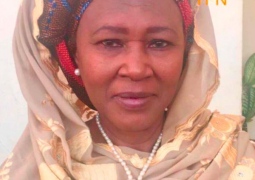In their efforts to improve the rural finance environment through the promotion of a cooperative policy framework in
The theme of the seminar was "Innovation in Addressing Rural Finance Challenges in
The Governor of the Central Bank of The Gambia, Mr. Momodou Bamba Saho, acknowledged, in his opening remarks, that microfinance is widely recognised as one of the tools in the fight against poverty as it can empower poor people in empowering their lives.
Mr. Saho cited
The Vice-Chairman of AFARACA, Mr. E Mkwawa, said that rich countries scold poor countries for being solely responsible for their woeful poverty. He informed participants that the IMF/World Bank adjustment programmes were designed to address the four maladies assumed to underline all economic ills in
Mr. Mkwawa replied to these accusations by saying that the current African generation can end the corrupt relationship between powerful and weaker parts of the world which have been there for so long.
"This is
Read Other Articles In Article (Archive)
Boost for AFPRC general hospital
Jun 2, 2010, 12:31 PM
A Busy Week for The Gambia as a Host of Services are Launched
Jul 23, 2008, 6:18 AM



